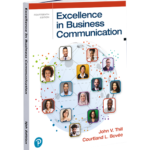 Teaching a college business communication course can be both rewarding and challenging. As an instructor, you are tasked with preparing students for effective communication in the professional world. However, there are several obstacles that you may encounter along the way. In this article, we will discuss the top 10 challenges in teaching a college business communication course and provide strategies to overcome them.
Teaching a college business communication course can be both rewarding and challenging. As an instructor, you are tasked with preparing students for effective communication in the professional world. However, there are several obstacles that you may encounter along the way. In this article, we will discuss the top 10 challenges in teaching a college business communication course and provide strategies to overcome them.
Varying skill levels: Students enter the course with different backgrounds and skill levels in communication. To address this, assess students' abilities early on and provide differentiated instruction. Offer additional resources and support for struggling students and challenge advanced learners with more complex tasks.
Lack of engagement: Keeping students engaged can be difficult, especially in a subject that some may find dry. Make the course interactive by incorporating group discussions, case studies, and real-world examples. Use multimedia resources to capture students' attention and break up lengthy lectures.
Relevance to students' lives: Students may not see the immediate relevance of business communication to their lives. Highlight the importance of effective communication in their future careers and personal lives. Invite guest speakers from various industries to share their experiences and emphasize the value of strong communication skills.
Time management: Covering all the necessary material within the allotted time can be challenging. Prioritize key concepts and skills, and create a well-structured syllabus. Use a variety of teaching methods to maximize class time, such as flipped classroom techniques or online modules for supplementary content.
Providing meaningful feedback: Offering constructive feedback on students' work is time-consuming but essential for their growth. Use rubrics to streamline the grading process and provide clear expectations. Consider using peer feedback activities to encourage student engagement and reduce your workload.
Adapting to technology: As business communication increasingly relies on technology, it's important to incorporate digital tools into the course. Familiarize yourself with relevant software and platforms, and provide students with opportunities to practice using them. Encourage students to use technology responsibly and professionally.
Addressing diverse communication styles: Students come from various cultural backgrounds and may have different communication styles. Foster an inclusive classroom environment that respects diversity. Discuss the importance of cultural sensitivity and adapt your teaching methods to accommodate different learning styles.
Teaching writing skills: Developing strong writing skills is crucial for business communication, but it can be a challenge to teach. Break down the writing process into manageable steps and provide clear guidelines and examples. Offer opportunities for revision and feedback, and encourage students to seek help from writing centers or tutors.
Balancing individual and group work: Group projects are common in business communication courses, but they can be challenging to manage. Establish clear expectations for group work and provide guidance on effective collaboration. Monitor group dynamics and intervene if necessary to ensure fair participation and prevent conflicts.
Staying current with industry trends: Business communication practices evolve rapidly, and it's important to keep your course content up-to-date. Stay informed about industry trends and incorporate current examples and case studies. Attend professional development workshops and conferences to enhance your own knowledge and teaching skills.
Teaching a college business communication course presents unique challenges, but with the right strategies, you can create a dynamic and effective learning environment. By addressing varying skill levels, engaging students, emphasizing relevance, managing time effectively, providing meaningful feedback, adapting to technology, addressing diverse communication styles, teaching writing skills, balancing individual and group work, and staying current with industry trends, you can help your students develop the communication skills they need to succeed in their professional lives.
Why Excellence in Business Communication with MyLab is the Ideal Solution for Overcoming Teaching Challenges
 Excellence in Business Communication, coupled with the MyLab online learning platform, provides instructors with a comprehensive solution to effectively address the challenges of teaching a college business communication course. Here's how this combination helps overcome the top 10 challenges:
Excellence in Business Communication, coupled with the MyLab online learning platform, provides instructors with a comprehensive solution to effectively address the challenges of teaching a college business communication course. Here's how this combination helps overcome the top 10 challenges:
Varying skill levels: The book offers a range of exercises and activities catering to different skill levels, while MyLab provides adaptive learning tools that adjust to each student's needs. This allows instructors to easily differentiate instruction and support students of all skill levels.
Lack of engagement: The text features engaging real-world examples, case studies, and interactive elements that capture students' attention. MyLab further enhances engagement with interactive simulations, videos, and self-paced learning activities.
Relevance to students' lives: Excellence in Business Communication emphasizes the practical applications of communication skills in professional settings. MyLab reinforces this relevance through real-world scenarios and assessments that mirror workplace challenges.
Time management: The book is well-structured and organized, making it easy for instructors to plan their lessons efficiently. MyLab automates grading and provides instant feedback, saving instructors valuable time.
Providing meaningful feedback: The text includes rubrics and assessment tools that streamline the grading process. MyLab offers automated grading and personalized feedback, ensuring students receive timely and constructive guidance on their work.
Adapting to technology: Excellence in Business Communication covers the latest digital tools and platforms used in business communication. MyLab integrates seamlessly with these technologies, including artificial intelligence, providing students with hands-on practice and experience.
Addressing diverse communication styles: The book acknowledges the importance of cultural sensitivity and includes examples and exercises that promote inclusive communication. MyLab offers a variety of learning resources that cater to different communication styles and cultural backgrounds.
Teaching writing skills: The text breaks down the writing process into manageable steps and provides clear guidelines and examples. MyLab includes writing assessments and tutorials that help students practice and refine their writing skills.
Balancing individual and group work: Excellence in Business Communication includes a balance of individual and group activities. MyLab facilitates online collaboration and provides tools for managing group projects effectively.
Staying current with industry trends: The book is regularly updated to reflect the latest trends and best practices in business communication. MyLab ensures that students have access to the most current resources and interactive content.
MyLab also offers a range of benefits for instructors, including:
• Easy course setup and management
• Customizable course content
• Gradebook and performance tracking tools
• Integration with learning management systems
For students, MyLab provides:
• Personalized study plans
• Interactive learning aids
• Self-assessment tools
• Mobile access to course materials
• Simulations: Decision-making activities that places students in real-world business scenarios.
• Dynamic Study Modules: An adaptive study tool
that helps students learn course concepts.
• Chapter Warm-ups: Practice assessments that help you hold your students accountable for learning key concepts in each chapter before coming to class.
• Chapter Quizzes: Assess your students' knowledge of key course concepts and textbook material.
• Case Study Library: Flexible and growing collection of over 100 supplemental Case Study assignments, aligned to courses across the business school.
• Personal Inventory Assessments: Self-assessment assignments designed to promote self-reflection and engagement in students, helping them to better understand concepts by connecting them to their personal experience.
• Writing Assignments: Assess your students' writing and critical thinking.
By combining the comprehensive content of Excellence in Business Communication with the interactive learning tools of MyLab, instructors can create a dynamic and effective learning environment. This powerful combination addresses the challenges of teaching a college business communication course, ensuring that students develop the skills they need to succeed in their professional lives.